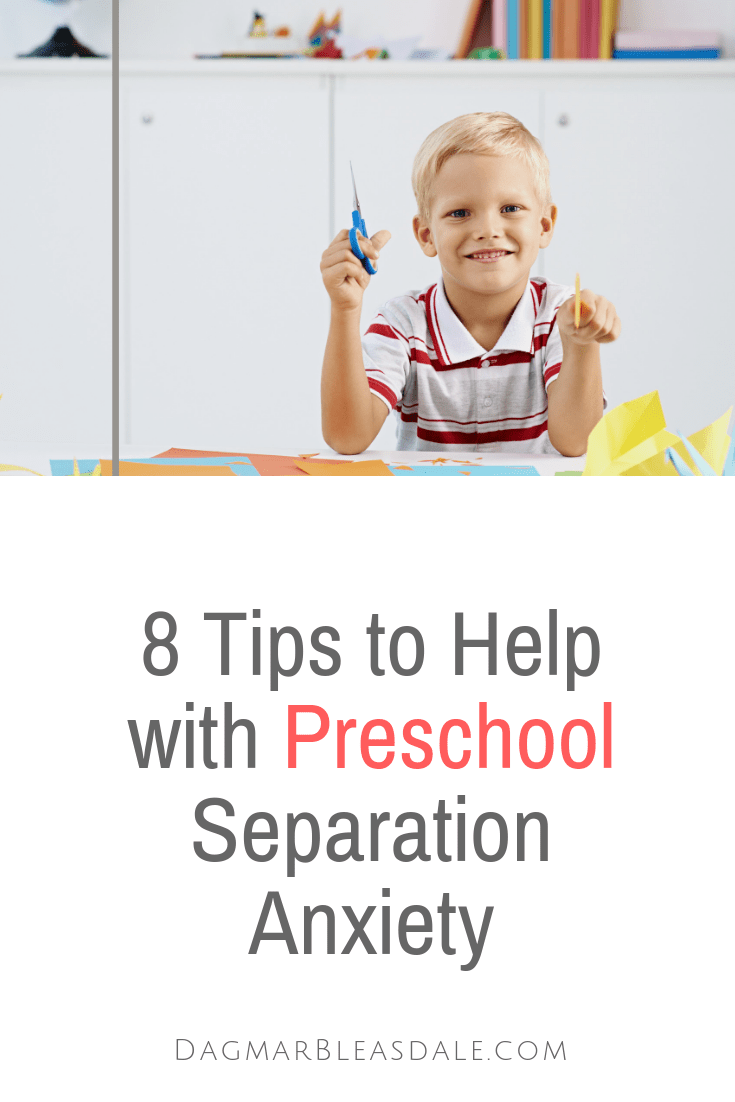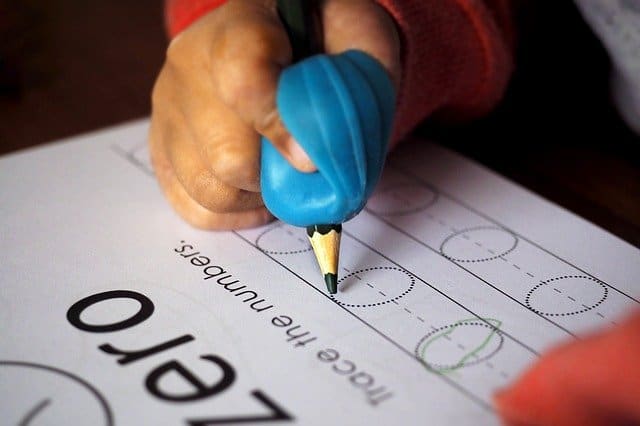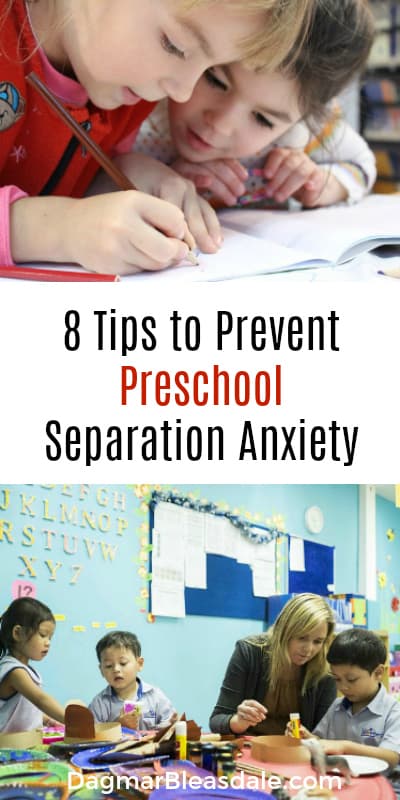8 Tips to Help With Separation Anxiety in Children
Landon started preschool six weeks ago, and by now he really loves it.
After preparing him, and myself, extensively for his first day in preschool, he did great and didn’t even cry when I left.
On the first two days I stayed for 30 minutes to make sure he felt comfortable, and he waved at me when I told him I’d leave to get a coffee.
On the third day his teacher told him, and me, that I would be leaving right now, and that did upset Landon.
I know my child, we are very close and he needed a little more time to be okay, but I guess his teacher wanted to get her day started and didn’t want me hanging around.
I can accept that and went along with it, although Landon visibly had a harder time with me leaving right away.
He started to cry and clung to me.
We assure him that I would come back very soon and Ms. Laura eventually took him in her arms and comforted and distracted him so I could leave.
I stayed in the hallway until I heard that L stopped crying, which took about three minutes.
I was able to take a peak in the door and saw that Ms. Laura was doing a good job to get him interested in playing with the other kids.
This clinging to me and crying lasted for about three mornings.
He got over that hump, but L has been more clingy and more separation anxiety in general since starting preschool.
But that could also have to do with me dropping him off at Grandma’s more often or him going with Daddy more often because I need to have time to pack for our move.
Now that I have a little bit more insight and experience, here are 8 tips for parents of preschoolers or kindergarteners that will help with preparing your child and help with separation anxiety.
Tips For Preschool Separation Anxiety in Children
1. Don’t sneak out on your child, always say goodbye.
How would you feel if someone left you without an explanation in a new, strange place?
The fact that you are coming back will teach your child that he or she can trust you, strengthen your relationship, and foster independence.
Here is the best book to make the separation easier: The Kissing Hand.
It is such a sweet story, and will make all the difference — you’ll see!
This post contains affiliate links for your convenience – read more.
2. Be prepared that your child might have a delayed reaction to the separation.
He or she might initially roll with the punches but get more needy and clingy after a few days.
Keep reassuring your child that you will always come back to pick up him or her.
3. Be prepared that YOU might have a delayed reaction to the separation!
I was out of sorts the first day I left L at preschool, but felt okay enough not to cry.
Two weeks later I watched another mom have to leave her little son for the first time, and seeing him keep asking for more and more kisses made me cry.
I felt so bad for that mom — I knew exactly how hard it is to leave your baby there.
4. Tuck a family picture in your child’s lunch box so she can look at it when she wants mommy or daddy.
I can imagine that that doesn’t help some children, though, it might make the child more upset, so I would ask the preschool teacher what she thinks about this idea for your child.
5. Ease your mind by waiting around to see how long it actually takes for your child to stop crying.
You might be surprised to find that he/she only cries for a few minutes.
6. Work with the preschool staff.
If you notice that your child is in a lot of distress or isn’t adjusting well after a couple of weeks, talk to the staff about what the problem seems to be and how it can be addressed.
Every child’s needs are different, and you probably have a good idea as the parent what would help your child.
Get the staff on board with your idea and try out that new approach.
7. Don’t be afraid to give the school’s director or teacher directions.
Landon doesn’t eat much of his snack in preschool, and because he also doesn’t want much breakfast at home, I instructed his teacher to encourage him to eat more.
I pay a lot of money for him to be well taken care of, so I don’t have a problem requesting how they handle certain things.
8. Avoid being late to pick up your child to make sure your child doesn’t get distressed while having to wait.
Make the pickup the priority — everything else that needs your attention can be dealt with afterward.
I hope you and your child have a wonderful preschool experience, and I hope that these tips for separation anxiety in children helped!
Do you have a preschool tip you want to share? Leave a comment to help other parents!
Pin it later!
You would also like this post:





